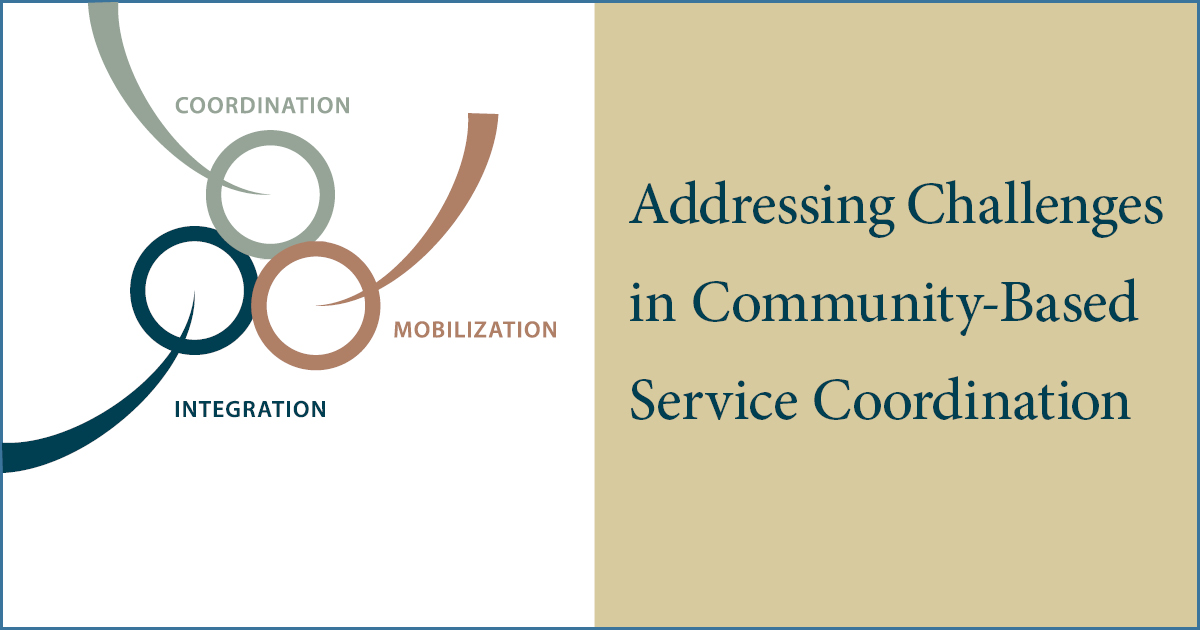Addressing Challenges in Community-Based Service Coordination
Breaking Down Silos to Promote Economic Opportunity

This brief is the second in a series documenting the implementation of an economic mobility initiative by New York City’s Change Capital Fund (CCF). CCF is a consortium of New York City donors formed to invest in local nonprofits that undertake data-driven antipoverty strategies integrating housing, education, and employment services. In response to the constraints of customary funding, CCF embraces a “cross-sector,” holistic approach to better serve community residents.
This series highlights issues for practitioners and funders involved with comprehensive community initiatives. The first brief described CCF in detail; introduced the initiative’s five grantees (New Settlement Apartments in the Bronx and St. Nicks Alliance, the Fifth Avenue Committee, Community Solutions/Brownsville Partnership, and Cypress Hills Local Development Corporation in Brooklyn); and shared the organizations’ ambitious work plans and start-up efforts. This second brief describes two pervasive challenges to service coordination and the ways grantees have responded to them.
One of the theories informing CCF is that community organizations are well positioned to coordinate multiple services to underserved low-income populations, but they often do not receive funding to build their capacity to execute coordinated work. Instead, traditional funding streams typically support a single program or service, which can encourage organizations, or programs within a multiservice organization, to specialize and take a more narrow approach to their work — resulting in “silos” instead of a joint effort. CCF departs from this practice, because its donors believe that an integrated approach to service delivery is an important way to “saturate” areas of persistent poverty with intensive, comprehensive services, cultivating multiple pathways toward neighborhood-level change. To this end, CCF has devoted resources not just to funding individual programs but also to helping groups develop their capability to coordinate work to meet the multiple, overlapping needs of low-income families. CCF does this in two ways: (1) by supporting multiservice organizations to break down internal silos, and (2) by supporting organizations in their effort to form partnerships in order to offer more comprehensive services to their communities.







